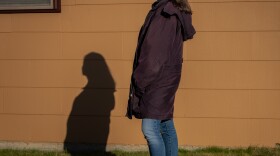
Geoff Brumfiel
Geoff Brumfiel works as a senior editor and correspondent on NPR's science desk. His editing duties include science and space, while his reporting focuses on the intersection of science and national security.
From April of 2016 to September of 2018, Brumfiel served as an editor overseeing basic research and climate science. Prior to that, he worked for three years as a reporter covering physics and space for the network. Brumfiel has carried his microphone into ghost villages created by the Fukushima nuclear accident in Japan. He's tracked the journey of highly enriched uranium as it was shipped out of Poland. For a story on how animals drink, he crouched for over an hour and tried to convince his neighbor's cat to lap a bowl of milk.
Before NPR, Brumfiel was based in London as a senior reporter for Nature Magazine from 2007-2013. There, he covered energy, space, climate, and the physical sciences. From 2002 – 2007, Brumfiel was Nature Magazine's Washington Correspondent.
Brumfiel is the 2013 winner of the Association of British Science Writers award for news reporting on the Fukushima nuclear accident.
-
Experts in Russian doctrine worry that as the war in Ukraine gets more desperate, Russia might be tempted to detonate a nuclear weapon.
-
The events on Monday in the Baltic Sea resembled blasts from depth charges or mines, according to a Swedish researcher. They caused major leaks from the inactive Nord Stream pipelines.
-
The head of the world's atomic watchdog warned that the reactors at Zaporizhzhia might have to be shut down. That would start a clock ticking at the site.
-
The international atomic watchdog has been to some of the world's toughest locations, but nothing quite like Europe's largest nuclear power plant in an active war zone.
-
Satellite images and social media analyzed by NPR show attacks have hit structures around the plant, coming dangerously close to causing a nuclear disaster.
-
A 75-year-old woman became enmeshed in conspiracy theories about COVID. After she got infected, she rejected effective treatments and sought out black market drugs instead.
-
Scientists have recorded a song coming from a volcano. They think the musical notes may someday be useful for predicting when a dangerous eruption might occur.
-
For decades, U.S. astronauts and Russian cosmonauts have lived side-by-side aboard the International Space Station. Now some are wondering whether that partnership can withstand the war in Ukraine.
-
As Americans commemorate a million deaths due to COVID-19, the partisan divide of who has gotten sick and died continues to grow, mostly due to disinformation about the vaccines.
-
Stephanie was usually careful about her health and regular vaccinations. But then she got into sharing far-out videos and fringe ideas. When COVID hit, misinformation put her and her husband at risk.









